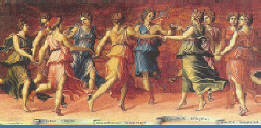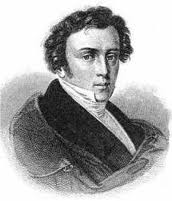|
|
Wilhelm Müller was born in Dessau and began writing poetry at age 14 upon the death of his
mother. Later, with the financial aid of his stepmother, he was able to enter Berlin
University to study history, literature and philology. His studies were interrupted by
his volunteering for the Prussian army, however, in order to participate in the last
battles against Napoleon but he recommenced his studies in 1815.
As well as poetry, his work included translations and theatrical works and literary
criticism as well as editorial work on several 17th century poetry collections. He
travelled to Egypt in 1817 and returned to Dessau via a prolonged stay in Italy. He
was appointed public librarian which was an appointment he retained for the remainder
of his working life.
His first major poetry collection Papieren eines Reisenden Waldhornisten contained the cycle
later set by Schubert as Die Schöne Müllerin. He married in 1821 and published
Lieder der Griechen in that year as well as Die Winterreise to which he
added further poems in 1822-1824. His poetry devoted to the Greek struggle for freedom
from Ottoman rule brought him public support that assisted him in his protests at the
repressions of the Prussian government.
Over the next few years, he published extensively works that were highly regarded by
publisher and readers. He contracted whooping cough in 1826, however, which was the
probable cause of a swift decline in health leading to his death from a heart attack at
age 32 years.
His works were highly regarded by Heine and were influential on Tennyson. They express life
in a sensitivity of language that attracted criticism in later decades as being mere
convention. Despite the critics confusing simplicity with naivety, his works remain
honoured today largely assisted by Schubert's achievements in his great song cycles.
|

